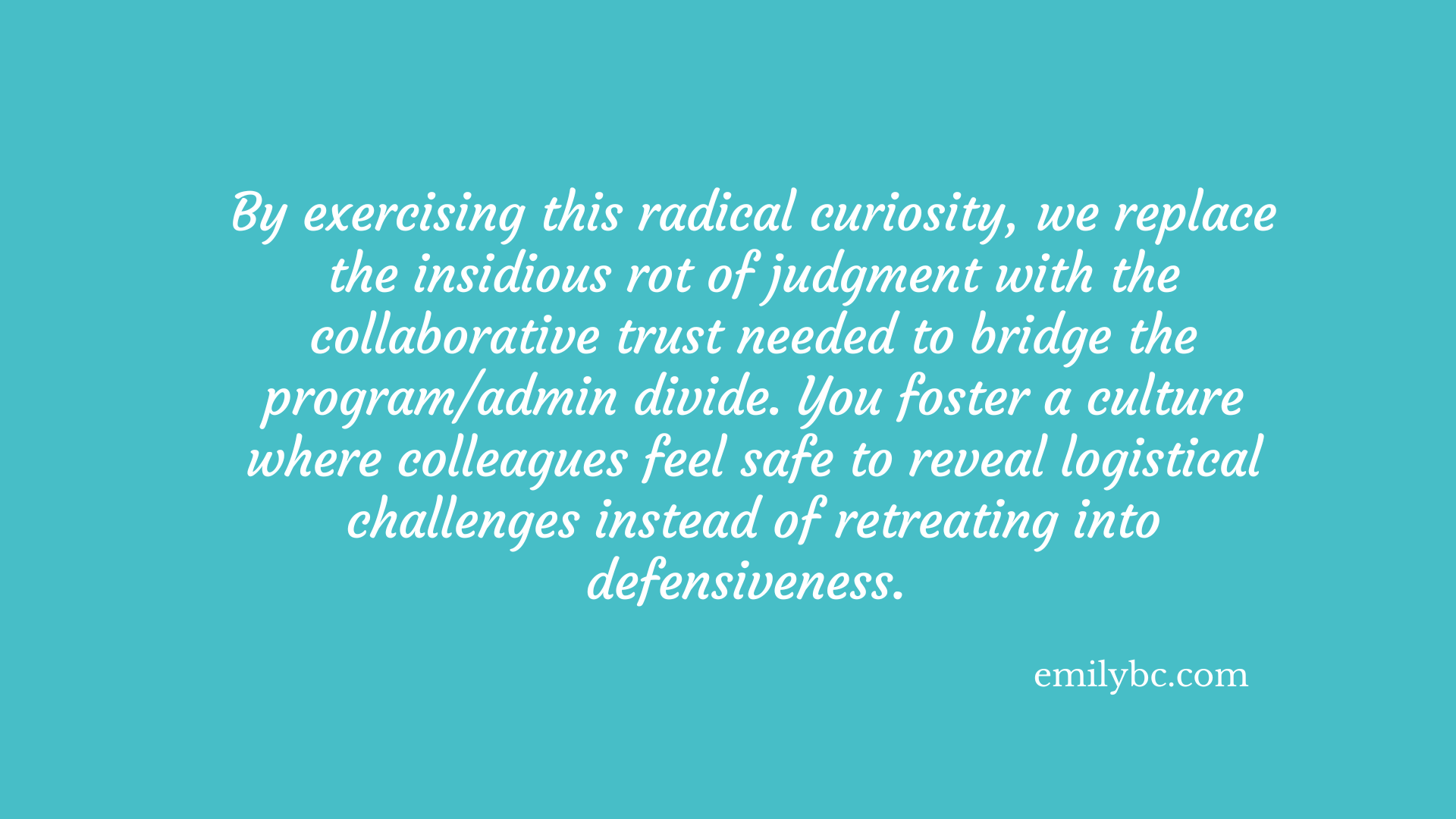The Invisible Cost of Assumptions

In the mission-driven world, there exists an exhausting tension: the chasm between the Program team, who are the beating heart focused on direct service, and the Development and Admin team, who are the survival engine focused on funding and compliance.
The stakes are structural. Our organizations rely on how skillfully Development translates program outcomes into a narrative of measurable impact for the external funder. When a Program Coordinator is buried in execution, the demand for data often feels like an impossible imposition. Conversely, when a Development Director faces a looming audit, the missing report feels like an existential threat.
This structural friction guarantees that when deadlines are missed, assumptions flare. We assume malfeasance, incompetence, or apathy, and that story becomes the source of profound, collective resentment. But this conflict disappears when we stop interpreting motives and start uncovering context.
When Context Replaces Conflict: The Missing Report
Consider the case of Adams, a highly valued Program Coordinator, and Tyree, the Director of Development. Adams consistently failed to submit the monthly compliance reports crucial for renewing a major foundation grant. Tyree’s internal narrative was immediate and toxic: Adams must think necessary paperwork is beneath their 'real work,' jeopardizing our funding.
Instead of confronting Adams directly, Tyree chose to seek systemic context. She contacted Terese, the Operations Manager who managed the program tools, focusing her inquiry on the process: "Terese, I’m finalizing our monthly tracking. Can you confirm if there's been any recent change to the submission process? I can't seem to locate Adams's report."
Terese’s immediate response provided the crucial missing clarity: “That’s my fault, Tyree. I explicitly told Adams not to submit those yet. The new reporting automation tool is in a buggy beta phase. Adams is meticulous, and I instructed them to hold off until the stable rollout next week to protect the integrity of their data. I failed to communicate that formal, temporary hold to Development.”
The narrative about Adams—from non-compliant to diligent and protected—changed instantly. Adams was not defying expectations; they were following explicit internal instructions from Operations designed to prevent the submission of flawed data. Had Tyree acted on her unchecked assumption, she would have damaged a critical professional relationship on the basis of a self-serving, fictional story.
Bridging the Chasm with Curiosity
To interrupt this destructive cycle, we must impose a mandatory emotional delay. When frustration hits, grant yourself a moment, or a day, before allowing judgment to proceed. Acknowledge the feeling of anxiety, but mentally label the situation as "Requires More Information."
When you break that pause, your investigative focus must be on the system, not the person. Instead of asking, "Why did Adams fail to submit X?", ask a systemic question to an adjacent party, like: "Could you walk me through the current reporting process? I need to understand potential bottlenecks." This frames the issue as fixing a process, not punishing an individual.
Finally, default to a Neutral Context before assuming malice. Assume the failure is first attributable to factors outside the individual's control: a System Problem (buggy tool), a Priority Problem (conflicting instruction from another supervisor, like Terese), or an Information Gap (they didn't know the impact of the deadline).
By exercising this radical curiosity, we replace the insidious rot of judgment with the collaborative trust needed to bridge the program/admin divide. You foster a culture where colleagues feel safe to reveal logistical challenges instead of retreating into defensiveness. Trading the anxiety of assumption for the power of clarifying is the single most effective step we can take toward building high-trust organizations that can sustain the mission where it truly counts.

